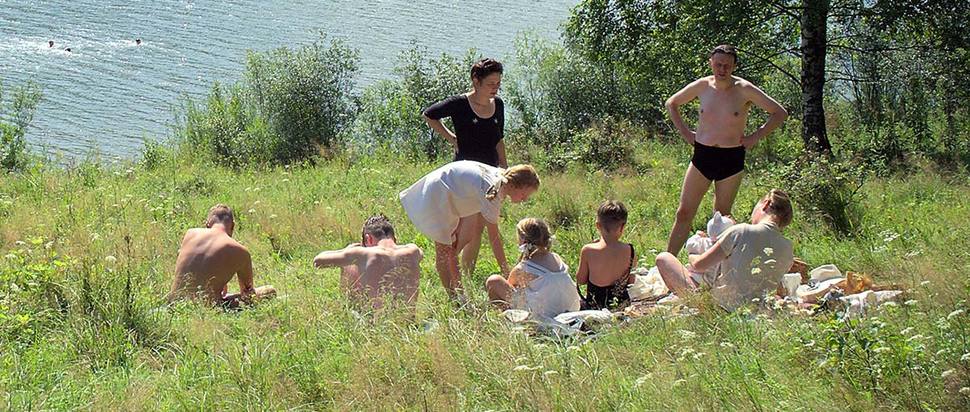The Zone of Interest
Jonathan Glazer explores the banality of evil in The Zone of Interest, which just picked up the Grand Prix at Cannes
It’s been a long decade since director Jonathan Glazer unleashed his masterpiece, the Glasgow-set extra-terrestrial thriller Under the Skin. For a filmmaker who continues to shapeshift beyond recognition, predicting what he'd done next is an impossible task. And just as Glazer dramatically shifted gears – tonally, thematically and visually – from Sexy Beast to Birth to Under the Skin, he pivots to harrowing new places with The Zone of Interest.
This is a singular film that dares to look at the other side of the Holocaust. As demonstrated by the film’s opening sequence, in which a German family frolics through grass and splash around in a river, there’s no internal moral conflict here. Glazer coldly observes how monsters can comfortably co-exist side-by-side with the fruits of their evil.
In an austere concrete villa, Nazi officer Rudolph (Christian Friedel) lives with his wife Hedwig (Sandra Hüller) and their children. They live, quite literally, on the doorstep to Auschwitz. Hedwig does her best to hide the barbed wire fence between the back garden and the camp by decorating it with vines, but no amount of decoration can mask the near-constant screams and gunfire. The most chilling effect of the locale manifests at nighttime, when the children’s bedrooms light up in amber from the flames erupting from the crematorium.
Glazer approaches the rhythms of their lives with the slow, functional pace not dissimilar to Jeanne Dielman, 23 quai du Commerce, 1080 Bruxelles, and an uneasiness permeates. Hedwig and her friends chit-chat about the weather, while in the next room, Rudolph holds a meeting with engineers about incineration chambers. And when Hedwig and her mother take a stroll through the house’s “paradise garden” filled neatly with gardenias, vegetables and a beehive, the latter glances towards the fence and remarks that her former employer could be there – all with unnerving nonchalance.
It’s this striking, horrifying dichotomy between evil and ambivalence that punctuates the film’s most crushing moments. The only real narrative turning point appears when Rudolph is ordered to transfer to a different camp, much to Hedwig’s protest. Never mind that atrocities are committed next door daily – what about the garden!?
There’s an empty coldness to The Zone of Interest that’s indebted to its audacious presentation. Shot by Cold War cinematographer Łukasz Żal, the film is almost entirely composed of static shots, as if the film is inviting you to observe these abominable people’s lives through an enormous microscope. Through the simplest of images, the most quotidian of routines, Glazer has an astounding ability to say so much while displaying so little.
To describe these people as in denial suggests that they’re aware what they’re doing is reprehensible. In fact, they just don’t care. And that’s what’s so disturbing about The Zone of Interest. Glazer doesn’t deal in crushing blows, but instead allows an uneasy air to fester like an ambient rot. The millions of victims of the Holocaust make no appearance in the film, and it’s precisely the absence of what’s lying on the precipice that elevates Glazer’s nightmare and makes it so chilling.
The Zone of Interest had its world premiere at Cannes and is out now in UK cinemas
